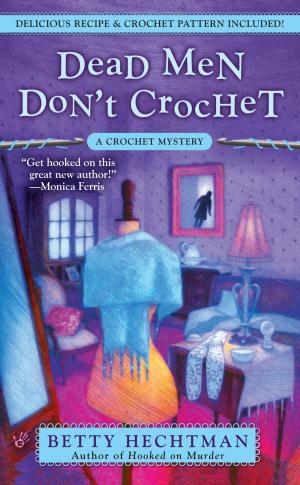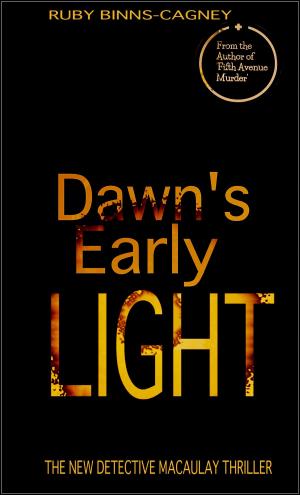| Author: | Bruce Briley | ISBN: | 9781938701153 |
| Publisher: | Bruce Briley | Publication: | August 9, 2012 |
| Imprint: | Smashwords Edition | Language: | English |
| Author: | Bruce Briley |
| ISBN: | 9781938701153 |
| Publisher: | Bruce Briley |
| Publication: | August 9, 2012 |
| Imprint: | Smashwords Edition |
| Language: | English |
The first of a series of Sherlock Holmes forbidden-to-be-published adventures, presented under the Imprimatur of the Conan-Doyle Estate. After relating the discovery of a cache of unpublished Holmes tales recorded by Watson, and discovered more than 50 years after his death by his grand-nephew, the first “deciphered” tale begins:
Holmes and Watson are engaged by the very-attractive wife of an Oxford Don Expert on Shakespeare who has disappeared. It transpires that the Don had become connected with the marketing of an arbitrarily rare set of documents comprising the Bard’s legendary Lost Folio. These documents were alleged to be a set of lost plays which, because of their antiquity, were worth millions irrespective of their quality. (Some of these had actually been played before limited audiences before being misplaced or destroyed, leaving only a lingering hint as to their titles and plots, one of them ostensibly connected to Cervantes’ Don Quixote.)
A note abruptly appears, demanding a staggering and numerically peculiar price for the Lost Folio and the return of her husband, along with a riddle that appears meaningless. Holmes and Watson are put through a multiplicity of trials, taking them all over England:
Stonehenge, Salisbury Cathedral, No. 10 Downing Street, Southampton, and, of course, Stratford upon Avon, etc., all triggered by some aspect of the ransom note, e.g., the Southampton trip is to check on the nature of the paper used for the note, which proves to be of a special “Diplomatic Grade” that includes erasure sensitivity, and is doled out only to people high in government circles. Each sheet holds a concealed series number that can be used to determine to whom it had been allotted.
Mathematical overtones of the Lost Folio price implicate someone in either the Queen’s Artillery, versed in calculating ballistic tables, or in the Admiralty, concerned with navigational calculations.
Holmes and Watson engage in burglary of the home of a n’er do well suspect, son of a royal personage with disquieting results.
Word comes that the Don’s wife has been brutally murdered, crushed by a falling stone at Stonehenge, causing much consternation.
Holmes requests an audience with the Prime Minister in order to secure records needed for the investigation, and engages in a verbal sparring match with the gentleman. Holmes prevails, and secures almost ministerial powers over the records office, to the awe of the functionaries there.
They trace the Don’s wife’s path prior to her death ( which she took in response to a threatening letter) to Piccadilly Circus, where, amongst ladies of the afternoon/evening, she would have been noticeable. Holmes, who turns out to be well known to the ladies (not as a customer, but as someone sensitive to their station in life, and willing, without charge, to help right wrongs inflicted upon them). They learn that she met with a man who forced her into a hansom cab, then the identity of the driver, who is later found dead.
In the meantime, the Don is found drowned in the Thames, bound with nautical knots. An autopsy, performed by one of Watson’s old school chums, the Don proves to be (mechanically) impotent, suggesting that his ravishing wife may have taken a lover, who might have been involved in the machinations of the Lost Folio. He proves, in fact, to be a Duke, an officious snob until Holmes braces him with the incontrovertible reasoning leading to him. It is learned that it was indeed he, at the behest of the Don’s wife, who chose to underwrite the purchase of the Lost Folio, and that he was being blackmailed because of it.
Holmes begins to consider the Don and his wife as having been more involved in the nefarious scheme surrounding the Folio, and the fine hand of Moriarty becomes evident.
A trap is laid, then sprung.
The first of a series of Sherlock Holmes forbidden-to-be-published adventures, presented under the Imprimatur of the Conan-Doyle Estate. After relating the discovery of a cache of unpublished Holmes tales recorded by Watson, and discovered more than 50 years after his death by his grand-nephew, the first “deciphered” tale begins:
Holmes and Watson are engaged by the very-attractive wife of an Oxford Don Expert on Shakespeare who has disappeared. It transpires that the Don had become connected with the marketing of an arbitrarily rare set of documents comprising the Bard’s legendary Lost Folio. These documents were alleged to be a set of lost plays which, because of their antiquity, were worth millions irrespective of their quality. (Some of these had actually been played before limited audiences before being misplaced or destroyed, leaving only a lingering hint as to their titles and plots, one of them ostensibly connected to Cervantes’ Don Quixote.)
A note abruptly appears, demanding a staggering and numerically peculiar price for the Lost Folio and the return of her husband, along with a riddle that appears meaningless. Holmes and Watson are put through a multiplicity of trials, taking them all over England:
Stonehenge, Salisbury Cathedral, No. 10 Downing Street, Southampton, and, of course, Stratford upon Avon, etc., all triggered by some aspect of the ransom note, e.g., the Southampton trip is to check on the nature of the paper used for the note, which proves to be of a special “Diplomatic Grade” that includes erasure sensitivity, and is doled out only to people high in government circles. Each sheet holds a concealed series number that can be used to determine to whom it had been allotted.
Mathematical overtones of the Lost Folio price implicate someone in either the Queen’s Artillery, versed in calculating ballistic tables, or in the Admiralty, concerned with navigational calculations.
Holmes and Watson engage in burglary of the home of a n’er do well suspect, son of a royal personage with disquieting results.
Word comes that the Don’s wife has been brutally murdered, crushed by a falling stone at Stonehenge, causing much consternation.
Holmes requests an audience with the Prime Minister in order to secure records needed for the investigation, and engages in a verbal sparring match with the gentleman. Holmes prevails, and secures almost ministerial powers over the records office, to the awe of the functionaries there.
They trace the Don’s wife’s path prior to her death ( which she took in response to a threatening letter) to Piccadilly Circus, where, amongst ladies of the afternoon/evening, she would have been noticeable. Holmes, who turns out to be well known to the ladies (not as a customer, but as someone sensitive to their station in life, and willing, without charge, to help right wrongs inflicted upon them). They learn that she met with a man who forced her into a hansom cab, then the identity of the driver, who is later found dead.
In the meantime, the Don is found drowned in the Thames, bound with nautical knots. An autopsy, performed by one of Watson’s old school chums, the Don proves to be (mechanically) impotent, suggesting that his ravishing wife may have taken a lover, who might have been involved in the machinations of the Lost Folio. He proves, in fact, to be a Duke, an officious snob until Holmes braces him with the incontrovertible reasoning leading to him. It is learned that it was indeed he, at the behest of the Don’s wife, who chose to underwrite the purchase of the Lost Folio, and that he was being blackmailed because of it.
Holmes begins to consider the Don and his wife as having been more involved in the nefarious scheme surrounding the Folio, and the fine hand of Moriarty becomes evident.
A trap is laid, then sprung.















